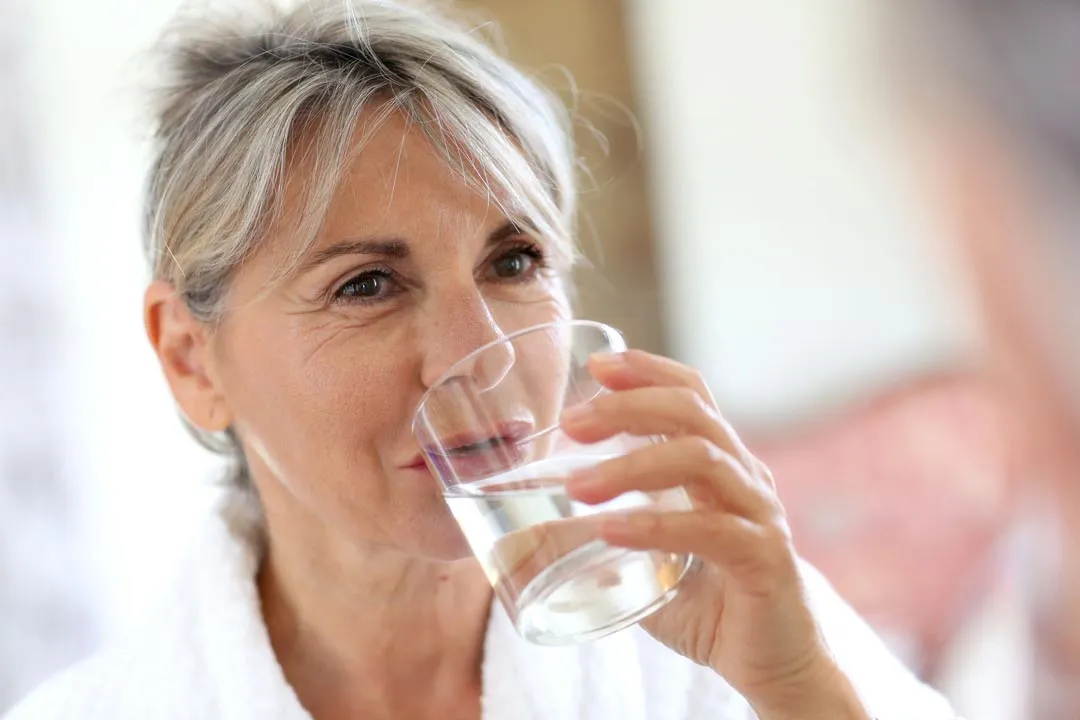The balanced diet is one of the three pillars of good diabetes control, together with the practice of physical exercise and pharmaceutical treatment, when this is scheduled by health professionals.However, getting a balanced diet, which includes good hydration, is not always simple, and the needs of each person are changing throughout life.
In the elderly with diabetes a correct food and hydration contributes to the good control of their blood glucose levels and reduce the problems of overweight and hypertension.
For that reason, it is important to adapt the food and hydration of the elderly with diabetes to their nutritional needs, so that patients are healthy and that their diet can contribute to good control of their blood glucose levels, something essentialto prevent the dreaded complications of pathology (retinopathy, cardiovascular accidents, diabetic foot, etc.) and avoid abrupt increases and descents of their blood glucose (hypoglycemia and hyperglycemia).
In turn, a balanced diet will contribute to reducing overweight and hypertension problems, common among people with type 2 diabetes, with the consequent improvement of the general state of health.And, according to the Spanish Society of Primary Care Physicians (Semergen), around 50.2% of people with diabetes suffer overweight and 83.3% hypertension.
It is also important to mention that adequate nutrition will not only be the basis of good disease control, but also a way to prevent the development of type 2 diabetes in people who still do not suffer from the pathology, but who present certain risk factors.The di@betes studio, published in 2012, pointed out that 37.4% of men and 41.3% of women over 76 have diabetes;But, in addition, 16.9% of men and 20.2% of women in this same age strip have some kind of tolerance altered to glucose (IGT), which may indicatea state of prediabetes.Therefore, it is never too late to take care of health and prevent the development of the disease.
balanced diet
A first consideration to keep in mind is that energy expenditure tends to decrease with aging, which implies a lower need in terms of calorie intake.At the general level, it is estimated that this need decreases 10% for every 10 years from the age of 60.
Secondly, in addition to taking into account the total amount of calories that are consumed daily, which will depend in much of the nutritional needs of each person and their level of physical activity, it will be important to focus on the composition of macronutrients of thediet.In this sense, the World Health Organization (WHO) recommends following the following proportions: 50% -55% carbohydrates, 30% -35% fat and 10% -12% protein.
But beyond these recommendations, the most appropriate route to achieve good nutrition in our elders is to promote a varied and balanced diet, divided into 4 or 5 daily meals, simple to elaborate and digest and in which a balance between thepersonal tastes and nutritional needs of each person.A good example of this type of food is the Mediterranean diet.
The most appropriate way to achieve good nutrition in our elders is to promote a varied and balanced diet
Paying attention to the nutrition of our elders will be essential, since during this stage of life there are a series of changes in the organism, to which attention should be paid, to avoid malnutrition.They are, for example: the problems of dental health and a lower production ofsaliva;the loss of appetite derived from changes in the regulation of certain hormones;Or the loss of mobility and food preparation skills, according to Dr. Montse Queralt.
In this sense, the Spanish Diabetes Federation (FEDE) launched in 2016 a campaign, together with the Spanish Family and Community Pharmacy Society (SEFAC) to detect the risk of malnutrition in older people with diabetes.Through this initiative, it was detected, through 1,078 interviews in community pharmacies, that 7.05% of people over 65 have malnutrition and 33.7% are at risk of malnutrition, data that increase between thepeople suffering from diabetes.This issue has also been denounced since the most nourished alliance, formed by scientific societies and groups of patient associations, such as the Spanish Patient Forum (FEP), of which Fede is part.
Hydration
A correct water intake is essential throughout life, but in the third age it acquires greater importance if possible, by facilitating the function of the kidneys and the intestinal tract, which can be deteriorated with age.In general, as in adult people, in the elderly it is recommended to eat around 2 liters of liquids every day, including juices, broths, infusions and, essentially, water.
A challenge related to hydration in older people with diabetes is that, at this stage of life, the feeling of thirst decreases, so many olderSummer monthsTo complement fluid intake and facilitate good hydration, it is recommended that older people consume a good amount of foods rich in water, such as fruits and vegetables.
It is necessary to take into account that food and hydration should always be accompanied by the other two pillars for the control of the diabetes mentioned at the beginning of this article.On the one hand, a regular practice of physical exercise.According to WHO recommendations, for adults over 65, the practice of 150 minutes of moderate weekly aerobic physical activity is recommended, within what the state of health allows.On the other hand, in those patients who have been paid a pharmacological treatment for diabetes control, it will be necessary to achieve good adhesion to it, since only 56% of the total number of people with diabetes follow their pharmacological treatment correctly.
To ensure that these three pillars are in equilibrium (food, exercise and pharmacological treatment), from FEDE there is great emphasis on the need for people with diabetes at a general level, and in particular those with some type of dependence such as theElderly, have broad social support from the people around them, especially their relatives.This support is presented as indispensable for people with diabetes and hence, in this year 2018, World Diabetes Day will focus their attention on the topic "Family and Diabetes".


